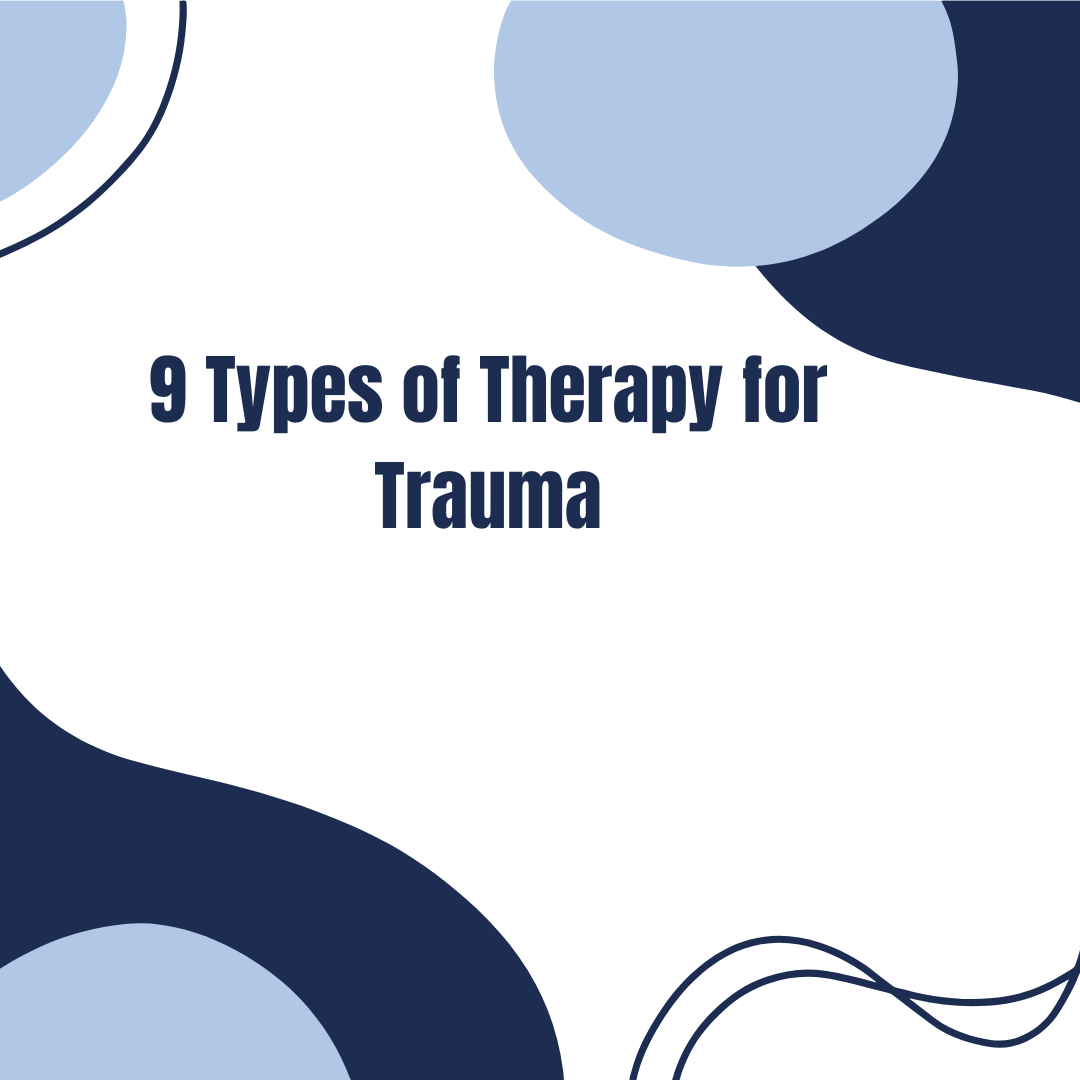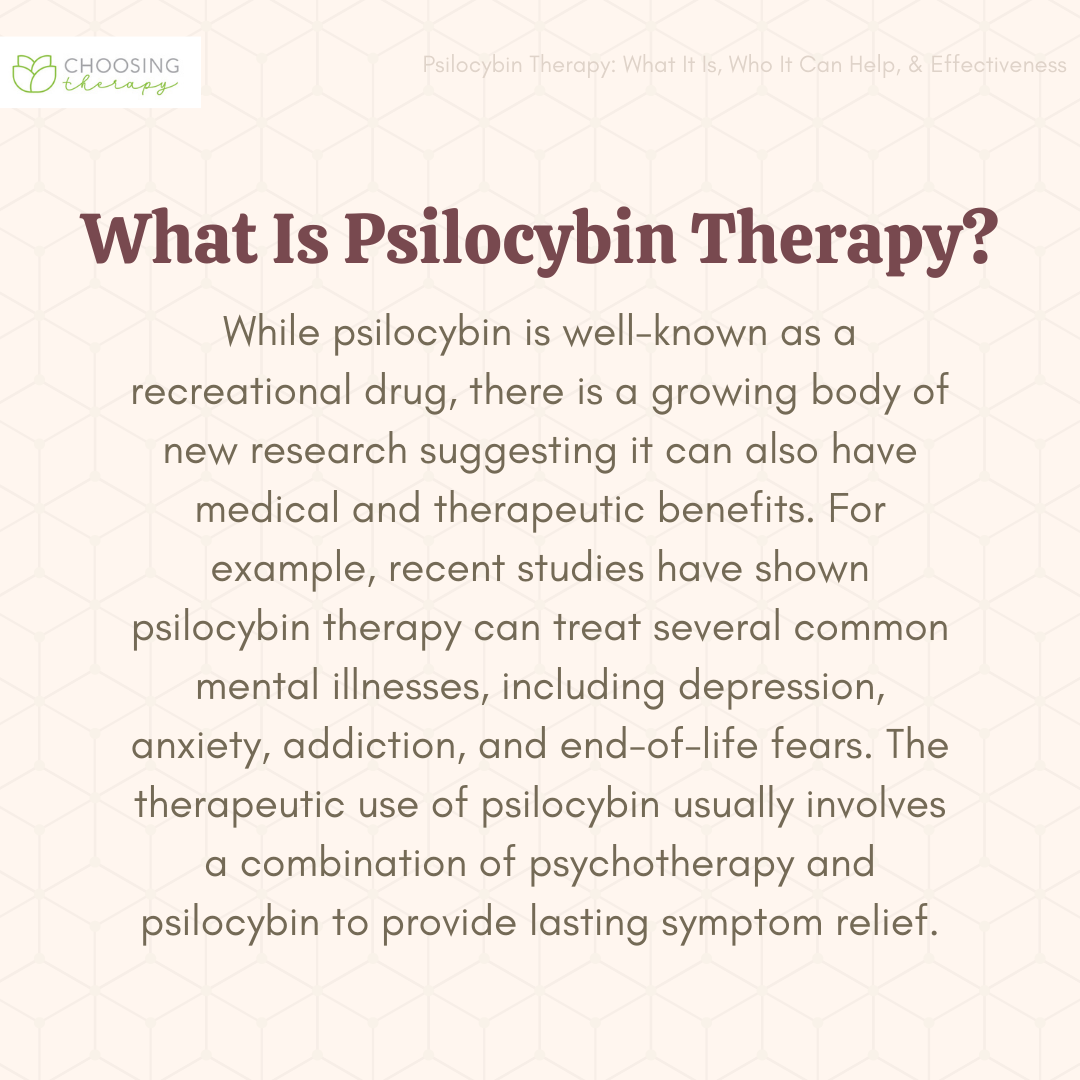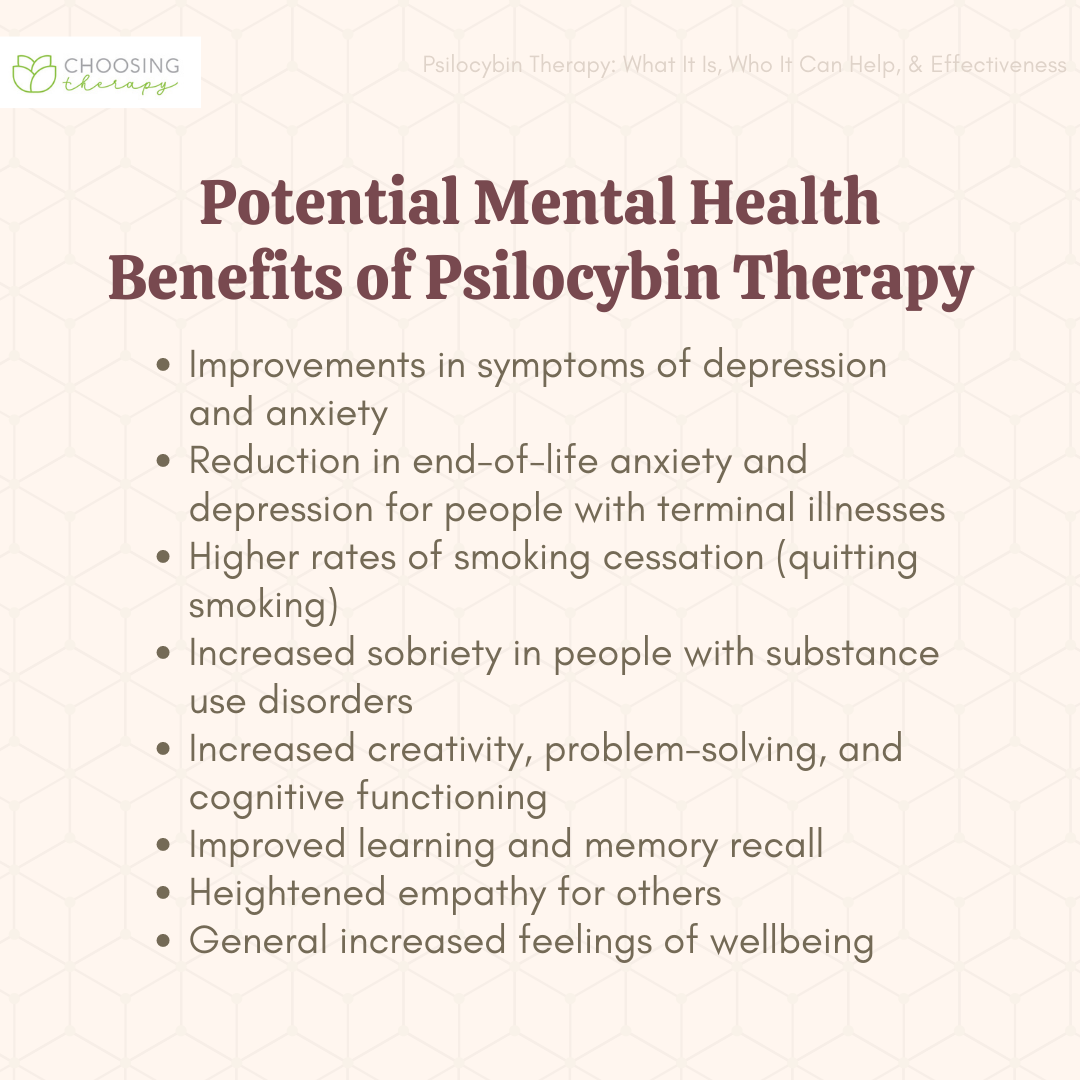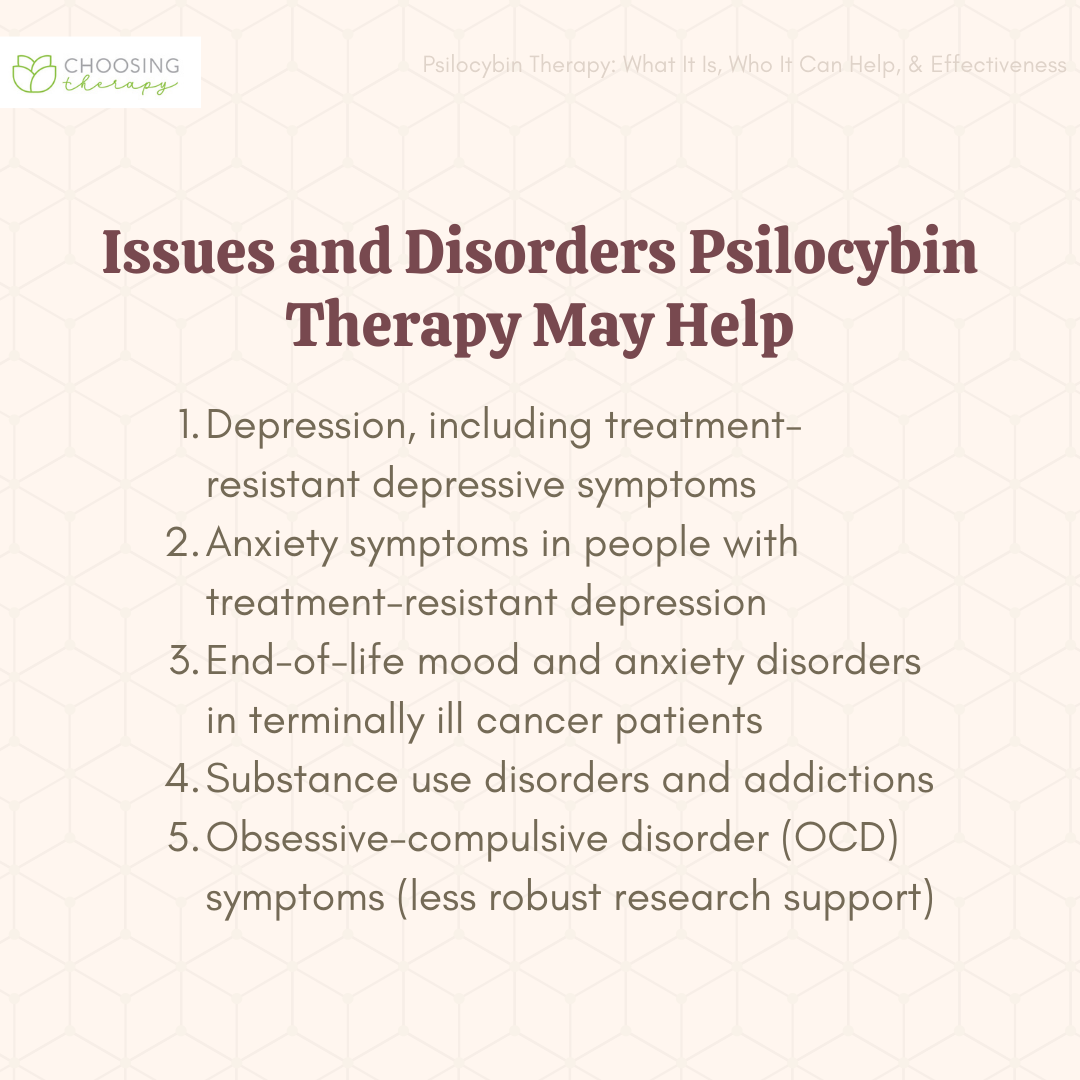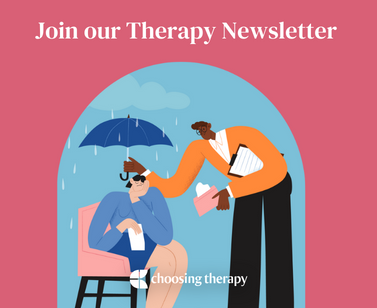Psilocybin therapy involves using psychedelic mushrooms in combination with psychotherapy to treat certain mental health conditions. Recent studies have shown that psilocybin therapy can help with depression, addiction, anxiety, and end-of-life issues.1, 2 However, as psilocybin therapy is still investigational, the only way to receive it is to participate in an active research trial at a medical university.3
Ketamine Program For Depression, Anxiety, and Trauma Nue.life offers an at-home, evidence-based ketamine program supported by hundreds of clinical studies. Our clients feel rapid & lasting relief within hours after the first treatment. Learn More
What Is Psilocybin Therapy?
While psilocybin is well-known as a recreational drug, there is a growing body of new research suggesting it can also have medical and therapeutic benefits. For example, recent studies have shown psilocybin therapy can treat several common mental illnesses, including depression, anxiety, addiction, and end-of-life fears. The therapeutic use of psilocybin usually involves a combination of psychotherapy and psilocybin to provide lasting symptom relief.1, 3
The protocols for psilocybin therapy are still being designed and tested. However, most involve one or two doses of psilocybin administered in sessions 3-4 weeks apart. People receiving this kind of psychedelic therapy receive their dose in an office setting under the careful monitoring and guidance of trained clinicians. After the drug kicks in, one or more trained therapists help to guide patients through the experience in a therapy session that can last for several hours.1, 4, 5, 6
What Is Psilocybin & How Does it Work?
Psilocybin is a naturally occurring psychedelic chemical found in over 100 species of mushrooms. However, it can also be synthetically made in a lab.1 The effects of psilocybin last about 2-6 hours and often include visual and auditory hallucinations along with heightened emotional and sensory experiences.3, 7 Psilocybin’s effects are similar to other psychedelics and can be very emotional, intense, and, at times, even disturbing. The “set and setting” is thought to have a large influence on whether a psychedelic trip will be a positive or negative experience for someone.1, 6
The goal of all forms of psychedelic therapy, including psilocybin-assisted psychotherapy, is to reduce the symptoms of a specific psychological or medical condition. While there is some debate about how psychedelics work, researchers know psilocybin activates serotonin and dopamine receptors in the brain.8 These brain chemicals are known to be involved in many mental health conditions like depression, anxiety, and substance use disorders, which may explain some of the beneficial effects of psilocybin.
In addition, many experts also believe that psychedelic drugs like psilocybin can enhance neuroplasticity, which is the brain’s ability to change and rewire itself to form new thinking and behavioral habits.8 This theory may help explain the long-lasting benefits experienced by many who receive only one or two psilocybin therapy sessions.1 For example, one study found that the peak benefits of psilocybin for anxiety were experienced 1-3 months after treatment ended. Similarly, the benefits of psilocybin for depression peaked 6 months after treatment ended.7
History of Psilocybin Mushroom Therapy
Psilocybin has been used around the world for centuries to aid in certain tribal rituals and spiritual practices. Like other psychedelics, psilocybin induces an altered state of consciousness that lasts several hours. Some believe that psilocybin mushrooms can facilitate mystical experiences, consistent with the stories of many people who have taken this drug. Still, the effects of psilocybin vary a lot from person to person, and not everyone will experience these effects.3, 6
Psilocybin gained popularity as a recreational drug in the 1960s and ‘70s, alongside other psychedelics like LSD (acid). During this time, tripping on mushrooms (or shrooms) became more widespread in the American public. Soon after, psilocybin was classified by the DEA as a Schedule 1 drug along with LSD and cannabis, making it illegal for Americans to use or possess. Around the same time, investigational research into the potential therapeutic effects of psilocybin and other psychedelic drugs was halted.3
This research ban continued until the late 1990s when some universities resumed psychedelic research. Today, several well-respected universities are currently researching psychedelic therapy. New studies on the potential benefits of psychedelic therapy are being published all the time, including many with promising implications for mental health.6 Despite the illegality of “magic mushroom therapy,” psilocybin is not considered addictive and overall is a safe drug with few long-term risks for healthy individuals.1
Is Psilocybin Therapy Legal?
In almost every state in the U.S., psilocybin is illegal for American citizens to buy, sell, or use. Recently, Oregon became the first state to legalize psilocybin for adults ages 21 and older. In the future, Oregon will allow specially licensed facilities to provide psilocybin therapy through an application process, but right now, these services are not available.9 This means that for now, psilocybin therapy is only available through one of the active clinical trials being conducted in universities.3
Experience the medically proven power of psychedelics from your own space Nue.life offers at-home oral ketamine therapy for you to heal from mental health conditions with a home turf advantage. Over 2/3 of all Nue Life clients report more than 50% reduction in depression, anxiety, and PTSD symptoms and it’s 60 to 80% cheaper than in-clinic therapy. Learn More
What Are the Potential Benefits of Psilocybin Therapy?
It’s important to note that the benefits of psilocybin therapy are still being researched, and currently, psilocybin therapy isn’t FDA-approved to treat any medical or mental illness. Still, the research published in the past several years suggests that psilocybin treatment may have promising mental health benefits. Specifically, psilocybin has helped some people struggling with depression, addiction, anxiety, obsessive-compulsive disorder, and distress related to terminal cancer diagnoses.1
Some of the potential mental health benefits of psilocybin therapy include:1, 2, 7, 8
- Improvements in symptoms of depression and anxiety
- Reduction in end-of-life anxiety & depression for people with terminal illnesses
- Higher rates of smoking cessation (quitting smoking)
- Increased sobriety in people with substance use disorders
- Increased creativity, problem-solving, and cognitive functioning
- Improved learning and memory recall
- Heightened empathy for others
- General increased feelings of wellbeing
What Issues & Disorders Can Psilocybin Therapy Treat?
Psilocybin treatment is still being researched, meaning it is not currently an FDA-approved treatment for any disorder. However, there are a number of different active trials being conducted around the country to determine what issues and disorders may respond well to this treatment.
Psilocybin therapy may be beneficial for those with the following issues and disorders:1, 5
- Depression, including treatment-resistant depressive symptoms
- Anxiety symptoms in people with treatment-resistant depression
- End-of-life mood and anxiety disorders in terminally ill cancer patients
- Substance use disorders and addictions
- Obsessive-compulsive disorder (OCD) symptoms (less robust research support)
What Can I Expect From a Psilocybin Therapy Session?
Psilocybin therapy is only available at major medical universities conducting trials on psychedelics in the U.S. People who want to try to enter one of the active psilocybin trials need to find and apply for one of the studies actively recruiting. Often, there are several steps involved in the application process, including filling out forms and consents and completing interviews to determine eligibility. Once you’ve been accepted into a psilocybin study, there are several stages of treatment, which are outlined below.
Stages of Psilocybin Therapy
Psilocybin therapy involves a lot more than just going to an office location to take a dose of psilocybin. In almost all clinics offering this kind of psychedelic therapy, the initial appointments do not involve taking any drugs. Instead, they are designated for assessment and screening to determine which patients are eligible. After being selected to participate in the study, the next appointments are usually designated for education and preparation. Finally, there will be one or more appointments where psychedelics will be administered, followed by sessions to process the experience.4, 5, 6
Here are the common stages of psilocybin therapy:4, 5, 6
- Screening: During the screening process, the researchers are working to recruit possible participants for the study. This process usually involves a series of steps, including screening questionnaires, interviews, and clinical assessments to determine a person’s eligibility for the study. Each study will use a different set of eligibility criteria, depending on the purpose and design of the research. After the screening process, you will be notified about whether or not you’ve been accepted into the study.
- Preparation: During the preparation phase, eligible people will be asked to attend one or more appointments with research staff at the facility. These appointments will inform patients about the study and what to expect, as well as any rules they have to follow before, during, or after their psilocybin treatment. In this phase, expect to be given a lot of information and to sign many consent forms. Usually, you will also schedule your first “real” psilocybin therapy appointment during this phase.
- Dosing: During the dosing phase, you will go to the facility to receive your first dose of psilocybin and receive your therapy appointment after the effects kick in. Often, this phase of treatment will occur in an office setting that’s arranged to be comfortable, with places to sit, lie down, and move around. As the effects of the drug kick in, one or more trained therapists will be there to comfort you, explain what’s happening, and begin to process your experience. Depending on what you’re seeking treatment for, the therapist may ask questions, bring up specific topics, or ask you to do certain exercises or activities, similar to a normal therapy appointment. This therapy session often lasts for several hours until the effects of the drug have worn off.
- Integration: After you’ve received your psilocybin-assisted psychotherapy session, you will usually be asked to attend one or more follow-up appointments. During this follow-up, you will usually not receive an additional dose of psilocybin. Instead, the appointment will be used to process and talk about your experience, report any changes in your symptoms, and gather information about your results. This session is also sometimes used to help people integrate insights and takeaways from their psychedelic trip. A number of different approaches, methods, and exercises may be used to facilitate the integration process.
- Follow-up: Normally, there’s a series of follow-up appointments or interviews after psilocybin therapy. These may be conducted in person or on a call, depending on the university’s policies. Most studies have built-in times for follow-ups, which may occur several times over the course of the year or so after psilocybin treatment has ended. These are designed to gather more information for the purpose of publishing the final results of the study. Even when follow-ups are not outlined in the study design, they’re encouraged as a way to monitor any long-term positive or negative effects from treatment.
Ketamine Program For Depression, Anxiety, and Trauma Nue.life offers an at-home, evidence-based ketamine program supported by hundreds of clinical studies. Our clients feel rapid & lasting relief within hours after the first treatment. Learn More
How Does Talk Therapy Support Psilocybin Mushroom Therapy?
Therapy is an essential part of psilocybin mushroom therapy for mental health and addictive disorders. Prior to beginning the clinical trial, a licensed therapist can verify a person’s diagnosis and conduct screenings to ensure they’re a good candidate for the treatment. A licensed therapist can also establish a baseline of the patient’s symptoms and may repeat these assessments after treatment to determine progress.
It’s common for people experimenting with psychedelics on their own to have negative experiences or “bad trips”, but having a trained therapist present can lower this risk. During the psychedelic therapy session, a therapist will provide support and reassurance to the person to help them stay calm. While reassurance may appear less important, a bad trip can be highly disturbing and anxiety-provoking and could potentially interfere with the beneficial aspects of the treatment.
A trained therapist can also guide the person through their psychedelic experience in ways that help them address the issues and problems they are trying to treat. Their presence is likely a key element differentiating psychedelic therapy from recreational drug use. However, more research is needed to determine the therapist’s role in the treatment process. Currently, almost all studies on psychedelic therapy involve the presence of a licensed therapist to guide the patient through the process.1, 4, 5, 6
Who May Not Be A Good Fit for Psilocybin Mushroom Therapy?
There are certain people who should not try psychedelic therapy using psilocybin or other hallucinogens. While psilocybin is usually considered a safe and non-toxic substance with very few long-term risks, the effects of the drug can still be destabilizing for people with certain mental health conditions. Also, the immediate effects of psilocybin can cause physiological changes in brain activity, heart rate, and blood pressure that increase the risk for people with certain medical conditions.1
For example, people with a history of schizophrenia or psychosis are usually not allowed in psilocybin therapy trials because the hallucinogenic effects of the drug could have negative long-term effects on the course of these disorders. Also, people with high blood pressure, heart problems, or a history of seizures are more likely to experience adverse effects. For these reasons, most clinical psilocybin trials exclude people with these conditions.1
Risks & Drawbacks of Psilocybin Therapy
While psilocybin therapy has demonstrated promising benefits for people with certain mental health conditions, not everyone will experience these positive effects. Because people respond so differently to psychoactive substances, there is no guarantee that psilocybin will improve symptoms. As with most treatments, it’s also possible to experience adverse effects from psilocybin. Some are directly related to the effects of the drug, including hallucinations, paranoia, synesthesia, and an inability to tell fantasy vs reality which will wear off with the effects of the drug.10
Most negative side effects of psilocybin therapy are mild and temporary in nature and include headaches, nausea, and trouble sleeping. It’s also possible to experience scary, disturbing, or upsetting thoughts, feelings, or hallucinations after taking a psychedelic drug. In rare instances, some people develop Hallucinogen Persisting Perception Disorder (HPPD). This condition involves experiencing random symptoms of psychedelic intoxication weeks, months, or even years after a psychedelic trip.1, 10
For most people, the biggest drawback of psilocybin therapy is the lack of access. The majority of people cannot legally access this treatment because it is only offered through clinical trials. People who do not qualify for these trials or live too far away cannot receive psilocybin treatment. Because the studies limit participation, it’s not easy to find an active trial to participate in, even when there are ones recruiting participants nearby.
In My Experience
In my experience, psychedelic drugs like psilocybin are an exciting area of research in mental health treatment and have shown promising and lasting results for disorders like depression, anxiety, and addiction. Psilocybin is widely considered the safest psychedelic and is favored among many experts conducting research into its therapeutic potential. It’s likely that the laws and regulations around drugs like psilocybin will change in the coming years, making this innovative treatment available to more people. Until then, it will only be legally available to people eligible and able to participate in clinical trials.
To help our readers take the next step in their mental health journey, Choosing Therapy has partnered with leaders in mental health and wellness. Choosing Therapy is compensated for marketing by the companies included below. Online Therapy BetterHelp – Get support and guidance from a licensed therapist. BetterHelp has over 25,000 therapists who provide convenient and affordable online therapy. Take A Free Online Assessment and get matched with the right therapist for you. Free Assessment Online PTSD treatment Talkiatry offers personalized care from psychiatrists who listen and take insurance. Get matched with a specialist in just 15 minutes. Take our assessment. Treatment For Trauma & OCD Half of people diagnosed with OCD have experienced a traumatic life event. The chronic exposure to stressful situations, such as ongoing bullying, or an abusive relationship can lead to the development of OCD symptoms. NOCD therapists specialize in treating both trauma and OCD and are in-network with many insurance plans. Visit NOCD Trauma & Abuse Newsletter A free newsletter for those impacted by trauma or abuse. Get encouragement, helpful tips, and the latest information. Sign Up Choosing Therapy Directory You can search for therapists by specialty, experience, insurance, or price, and location. Find a therapist today.Additional Resources
For Further Reading
If you’re interested in learning more about psilocybin and other types of psychedelic therapy, consider looking into the following resources:
How Does ERP Help With Intrusive Thoughts? Obsessive compulsive disorder (OCD) is a psychiatric condition marked by the presence of obsessive thoughts, images, doubts, or urges, followed by compulsive behaviors or acts aimed at easing the distress caused by the obsession. While the content of the obsessions can take many forms, they are always repetitive, persistent, involuntary, and intrusive, and they often result in a great deal of anxiety for the person experiencing them. 9 Types of Therapy for Trauma Experiencing trauma can result in distressing and debilitating symptoms, but remind yourself that there is hope for healing. If you or a loved one is suffering from the aftereffects of trauma, consider seeking therapy. Trauma therapy can help you reclaim your life and a positive sense of self. 
